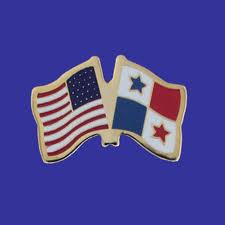(MiamiHerald) A senior U.S. working group is in Bogota this week to assess progress Colombia has made in labor law reform and in protecting labor union leaders from violence — issues that have been stumbling blocks in winning congressional approval for a U.S./Colombia free trade agreement.
Although the United States and Colombia signed off on the agreement in November 2006, and Colombia’s Congress approved it in 2007, the U.S. Congress has yet to give its stamp of approval.
When the group returns, it will present a report to President Barack Obama and his Cabinet to help them determine whether sufficient changes have been made on labor rights issues, said Deputy Assistant Secretary of State Matthew M. Rooney, who was in Miami on Monday.
The Colombian government has said it is making progress. But historically, Colombia has had one of the worst records in the world for protecting labor unionists. In Human Rights Watch’s annual World Report issued last month, it said that since 1986, 2,800 labor organizers have been killed in Colombia.
But the Unified Center for Workers, Colombia’s largest labor group, said last month that union leaders are still being murdered and the crimes aren’t being investigated. Domingo Tobar, the secretary general of the Unified Center for Workers, said by his organization’s count, 46 union leaders were assassinated last year.
From January to October 2010, the government reported 25 union leaders were killed.
Meanwhile, a delegation from Panama is expected in Washington in the next few weeks to report on progress it has made on issues, such as corporate and financial transparency, that have been concerns in the United States, said Rooney. The agreement with Panama, which was signed in 2007, also has languished.
The administration hopes to send the proposed free trade agreements with Colombia and Panama to Congress by mid-year and win passage by the end of the year, Rooney said.
A third pending free trade agreement with Korea is expected to be submitted to Congress in the next few weeks, according to U.S. Trade Representative Ron Kirk, who is hoping for passage this spring.
But in Colombia, patience is wearing a bit thin.
In an interview published Monday in Semana magazine, President Juan Manuel Santos said the country was looking beyond the FTA. “If the FTA is not approved this year, we’re not going to keep insisting,’’ he said.
Asked about alternatives, Santos said the country would look for new markets. “There is life without an FTA,’’ he said.
But he added, “I’m relatively optimistic about the agreement’s approval [by Congress].
If the free trade agreements are approved, they would eliminate most tariffs on U.S. exports immediately and phase out the remaining ones over a defined time frame as well as provide better access for U.S. providers of services, such as accounting and engineering.
Colombia now tacks on tariffs of about 14 percent for products from the U.S., making them more expensive for Colombian consumers.
Most Colombia products, such as flowers and leather goods, already enter the United States duty-free under the Andean Trade Preferences Act.When such agreements lapse, U.S. Customs generally collects duties on imports but then reimburses them once a preferential trade act is renewed, he said.
Congress is expected to take up the Andean agreement this week but the dilemma points up why Colombia would prefer an FTA, which would be permanent.
The sticking points on trade come at a time when the Obama administration has said it wants to double U.S. exports by 2014. If FTAs are approved for Korea, Panama and Colombia, Rooney said, “In each of those three cases, a doubling of exports is not out of the question.’’
Miami Herald Colombia Bureau Chief Jim Wyss contributed to this report.